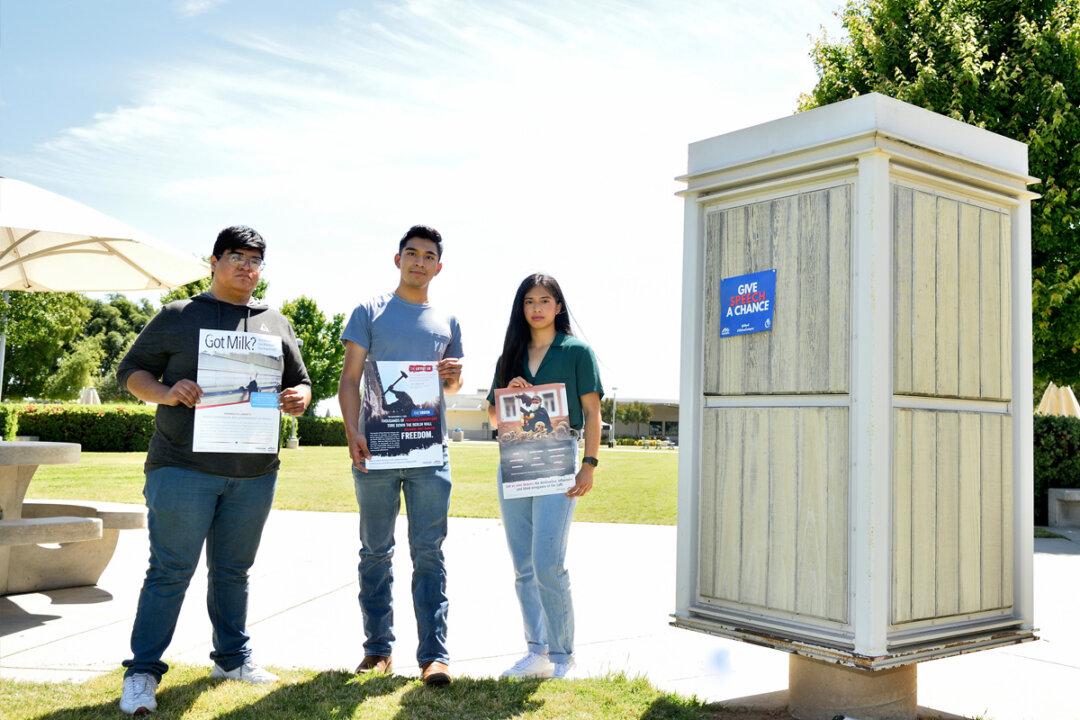A federal judge ordered a California community college on Aug. 2 not to enforce a poster policy that was used against three students whose anti-communist posters were taken down.
U.S. District Judge Jennifer Thurston found that the poster policy of Fresno-based Clovis Community College violated the students’ First Amendment and 14th Amendment rights.





